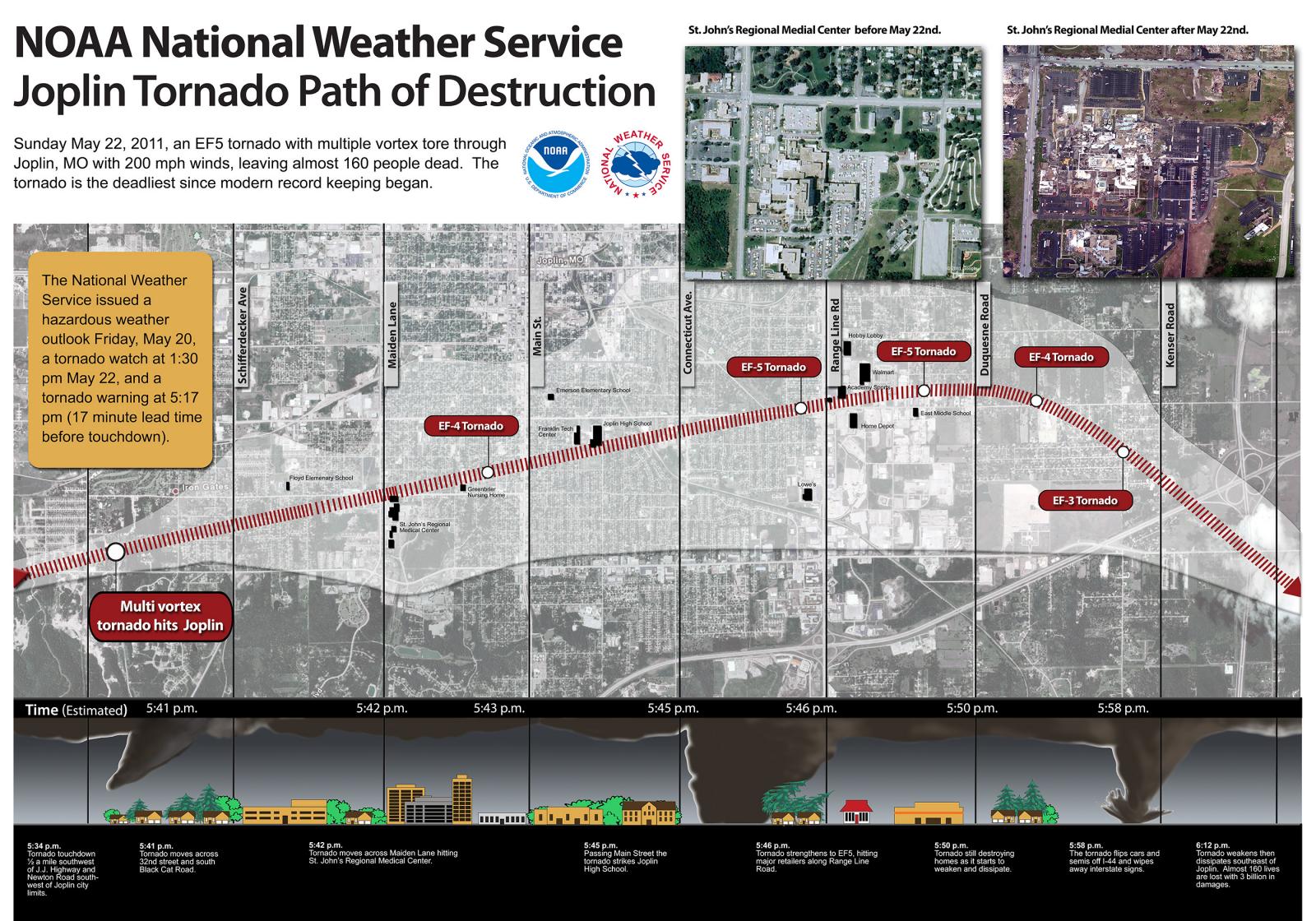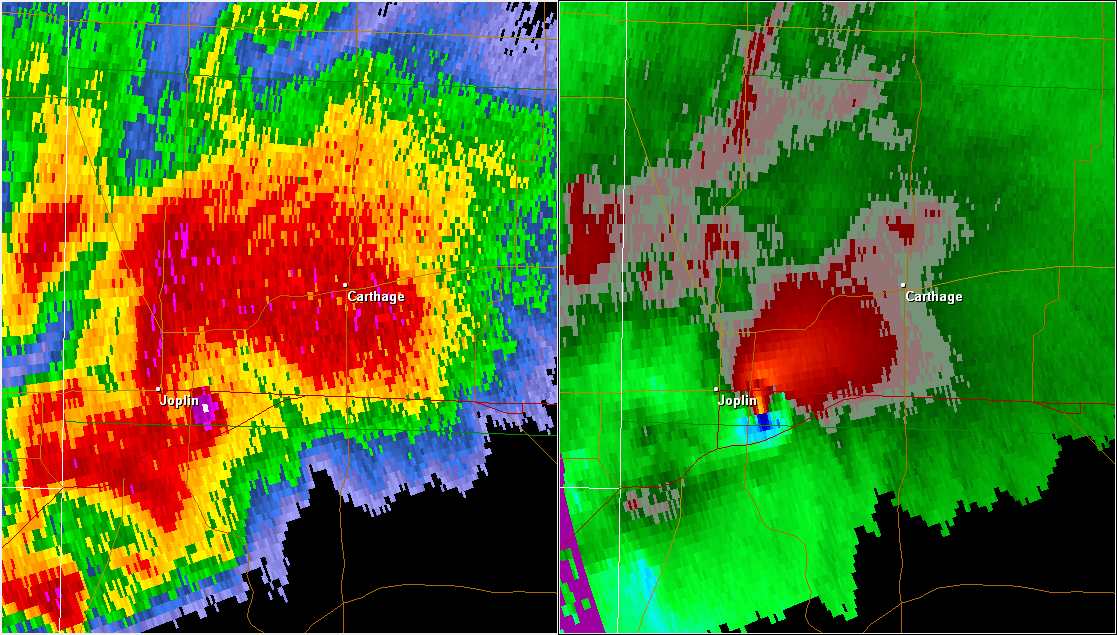The Joplin Tornado 2011 remains one of the most catastrophic weather events in U.S. history, leaving an indelible mark on the community and the nation. This EF5 tornado struck the city of Joplin, Missouri, on May 22, 2011, causing widespread destruction and loss of life. Understanding the event's impact and lessons learned is crucial for disaster preparedness and community resilience.
The devastation brought by the Joplin Tornado 2011 was unprecedented, with winds exceeding 200 mph. This disaster highlighted the importance of emergency preparedness and disaster response systems. As we delve deeper into this tragic event, we will explore its causes, consequences, and the steps taken to rebuild and recover.
From personal stories of survival to the broader implications for disaster management, the Joplin Tornado 2011 serves as a poignant reminder of nature's power and humanity's resilience. This article will provide a comprehensive overview of the event, its impact, and the lessons learned, ensuring that such tragedies lead to better preparedness in the future.
Read also:Patricia Dimango Net Worth An Indepth Look At Her Wealth Career And Influence
Contents:
- Background of the Joplin Tornado 2011
- Impact of the Tornado
- Causes of the Tornado
- Emergency Response
- Recovery Efforts
- Community Resilience
- Lessons Learned
- Key Statistics
- Disaster Preparedness
- Future Implications
Background of the Joplin Tornado 2011
The Joplin Tornado 2011 was a devastating EF5 tornado that struck Joplin, Missouri, on May 22, 2011. It remains one of the deadliest tornadoes in U.S. history, causing significant loss of life and property damage. The tornado formed during a severe weather outbreak that affected several states in the central United States.
As part of the broader weather system, the Joplin Tornado 2011 was the result of a supercell thunderstorm that developed due to the collision of warm, moist air from the Gulf of Mexico with cooler, drier air from the north. This clash created the perfect conditions for tornado formation.
Historical Context
The Joplin Tornado 2011 was not an isolated event but part of a larger pattern of severe weather that has affected the Midwest region. Understanding the historical context of tornadoes in this area helps in preparing for future events. The Midwest, often referred to as "Tornado Alley," experiences a disproportionate number of tornadoes due to its geographical location.
Impact of the Tornado
The impact of the Joplin Tornado 2011 was profound, affecting thousands of lives and causing billions of dollars in damages. The tornado's path of destruction was approximately 6 miles long and 0.75 miles wide, leaving a trail of devastation in its wake.
Loss of Life
One of the most tragic aspects of the Joplin Tornado 2011 was the loss of life. Nearly 161 people lost their lives, and more than 1,000 were injured. The high death toll was attributed to the tornado's intensity and the lack of adequate warning systems at the time.
Read also:25 Money Secrets Pdf Free Download Unlock Financial Wisdom Today
- 161 fatalities
- 1,150 injuries
- Thousands displaced
Causes of the Tornado
The Joplin Tornado 2011 was caused by a combination of meteorological factors that created the perfect conditions for an EF5 tornado. These factors include:
- Strong atmospheric instability
- High wind shear
- Moisture convergence
According to the National Oceanic and Atmospheric Administration (NOAA), these conditions are rare but can lead to catastrophic events when they align. Understanding the science behind tornado formation is crucial for improving forecasting and warning systems.
Emergency Response
The emergency response to the Joplin Tornado 2011 was swift but faced significant challenges due to the scale of the disaster. Local, state, and federal agencies worked together to provide immediate relief and support to the affected population.
First Responders
First responders played a critical role in the immediate aftermath of the tornado. Firefighters, police officers, and emergency medical services worked tirelessly to rescue survivors and provide medical care. The coordination between these agencies was essential in minimizing further loss of life.
Recovery Efforts
The recovery efforts following the Joplin Tornado 2011 were extensive, involving government agencies, non-profit organizations, and community volunteers. The focus was on rebuilding homes, restoring infrastructure, and providing support to those affected.
Community Involvement
Community involvement was a key factor in the recovery process. Local residents and businesses came together to support one another, demonstrating the strength of community bonds in times of crisis. This collective effort was instrumental in rebuilding Joplin and restoring hope to its residents.
Community Resilience
The resilience of the Joplin community in the face of such a devastating event is a testament to the strength of human spirit. Despite the challenges, residents and businesses worked together to rebuild and recover, creating a sense of hope and determination.
Support Systems
Various support systems were put in place to help residents cope with the emotional and psychological impact of the tornado. Counseling services, support groups, and community events were organized to address the mental health needs of the affected population.
Lessons Learned
The Joplin Tornado 2011 provided valuable lessons in disaster preparedness and response. These lessons have been incorporated into national disaster management strategies, improving the ability to respond to future events.
- Improved warning systems
- Enhanced communication protocols
- Increased community preparedness
Key Statistics
Understanding the statistics related to the Joplin Tornado 2011 helps in appreciating the scale of the disaster. Some key statistics include:
- Damage cost: $2.8 billion
- Number of homes destroyed: 7,000
- Businesses affected: 500
These statistics underscore the importance of disaster preparedness and the need for effective response strategies.
Disaster Preparedness
Disaster preparedness is crucial in minimizing the impact of future tornadoes. Lessons learned from the Joplin Tornado 2011 have led to improvements in warning systems, emergency response protocols, and community education.
Warning Systems
Advancements in tornado warning systems have significantly improved the ability to provide timely alerts to the public. Technologies such as Doppler radar and improved forecasting models have enhanced the accuracy and lead time of tornado warnings.
Future Implications
The future implications of the Joplin Tornado 2011 extend beyond the immediate recovery efforts. The event has highlighted the need for continued investment in disaster preparedness and resilience-building initiatives.
As climate change continues to influence weather patterns, the likelihood of severe weather events may increase. Therefore, it is essential to remain vigilant and proactive in preparing for future disasters.
Climate Change and Tornadoes
Research into the relationship between climate change and tornado frequency and intensity is ongoing. While no direct link has been established, the potential for increased tornado activity in certain regions is a concern that warrants further investigation.
Conclusion
The Joplin Tornado 2011 was a tragic event that left a lasting impact on the community and the nation. Through understanding its causes, consequences, and lessons learned, we can better prepare for future disasters and build more resilient communities.
We encourage readers to share this article and engage in discussions about disaster preparedness. Your feedback and insights are valuable in promoting awareness and readiness for future challenges. Together, we can work towards a safer and more resilient future.


